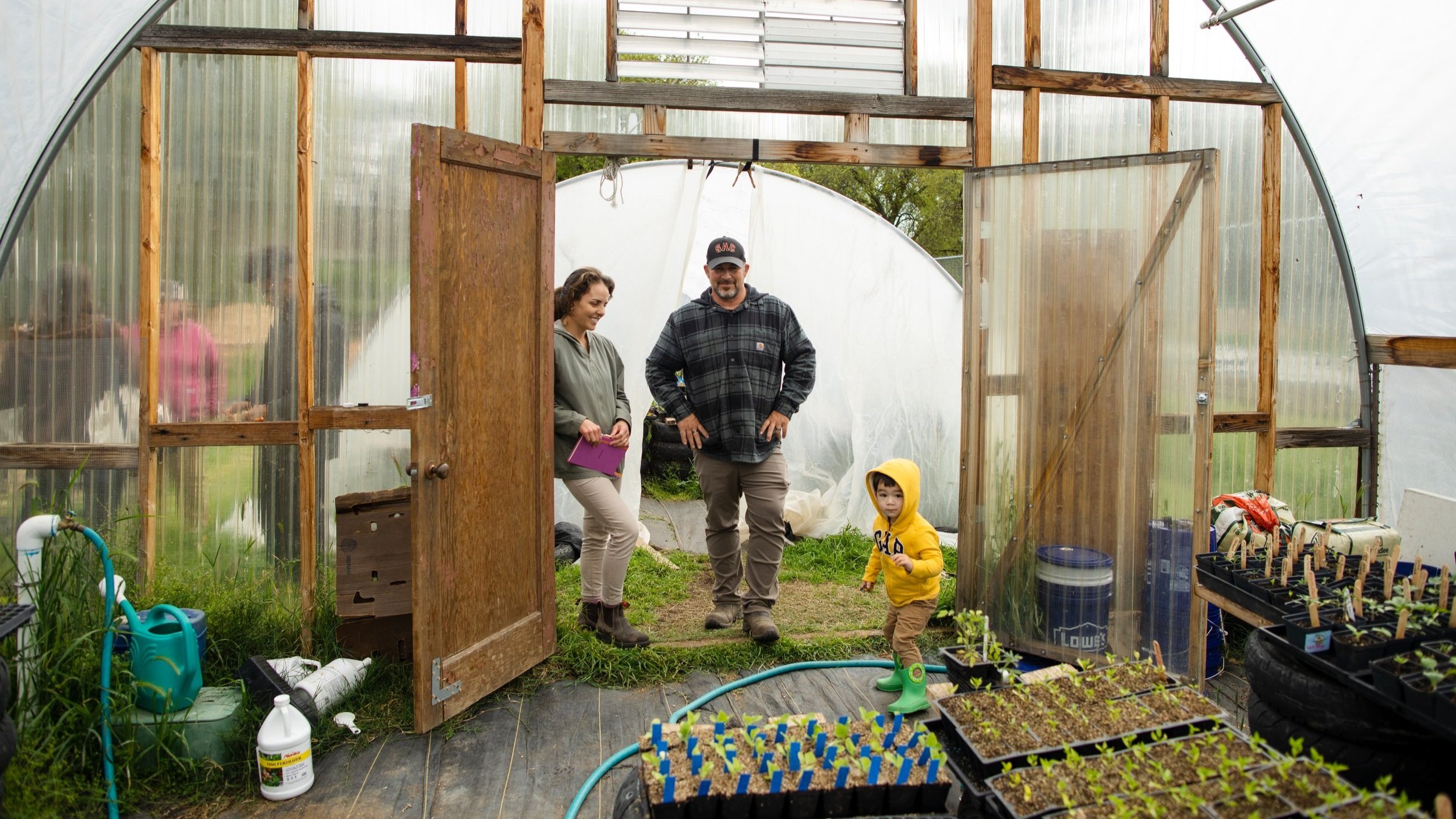
Our work focuses on both directly supporting farmers and ranchers through practical business advising and relationship building, as well as creating more equitable access to land, capital, and markets for producers.
One-on-one Business Advising
Kitchen Table Advisors provides bilingual business advising that meets small sustainable farmers and ranchers where they’re at with the tools, resources, and relationships they need to thrive. Recognizing our clients as the experts of both their businesses and broader systemic change, our three-year advising program is personalized to the needs and goals of farmers and ranchers.
What is business advising, you ask?
It looks like
Setting up and using Quickbooks (or another financial management tool)
Assessing and preparing for land purchase
Analyzing sales channel profitability
Learn more: Behind an Advising Relationship | Detrás de una relación de asesoramiento empresarial
It leads to
Stronger financial records used to make more informed business decisions
Intergenerational wealth building
Diverse, profitable sales channels
Learn more: Navigating the Current Economy
It feels like
Having a business support system (go-to contacts for mentorship, HR, marketing, lending)
Greater security and stability for the families and employees of farmers and ranchers
Improved quality of life
Learn more: Grounded Values in a Shifting Economy
Ecosystem Building
Our Ecosystem Building program activates and supports collaborative projects that create more equitable access to land, capital, and markets for small sustainable farmers and ranchers. Drawing on the wisdom and needs of our clients, we have understood the importance of fostering greater producer power and ownership within the institutions where they have not been heard nor led decision-making. Our approach to this work is to combine values-aligned community partnerships and innovative models that center the needs and visions of farmers and ranchers.
Each of the following highlights of our Ecosystem Building program correspond to one of the three pillars of our work. However, each project’s impacts are intended to transcend each area, fostering pathways for learning, collaboration, and self-determination.
Land
The current landscape The high cost of farmland and lack of smaller parcels of organic acreage are significant barriers to long-term land security. Additionally, control and ownership of farmland is being increasingly consolidated, deepening historic and current harm and inequity around land in the U.S.
Our focus Make more, higher quality agricultural land available for both individual producers as well as groups of farmers and ranchers stewarding land collectively
Our work
Markets
The current landscape Unpredictable direct-to-consumer and wholesale markets can often lead to unstable revenue streams for farmers and ranchers, positioning them as price takers. Additionally, accessing and engaging in new market channels can come with its own set of obstacles, including buyer connections, regulatory requirements, capital for start-up, understanding of regulatory, buyer and channel requirements, and time to invest in development.
Our focus Open new sales opportunities that help diversify client market channels and secure a fair price, and support clients’ preparedness to sell into these channels
Our work
Coastside Local (KTA project feature--The Makings of a Regional Food Hub)
Pilot new purchasing programs
Support the development and governance of producer-led food hubs
Financial Capital
The current landscape Many small-scale farmers and ranchers experience barriers to financing critical investments and obtaining working capital for their businesses. Accessing capital is inhibited by eligibility requirements, unqualified credit history, complex application processes, extended timelines to receive funds, language barriers, and how the capital is designed.
Our focus Secure necessary capital for farmers and ranchers while also ensuring that capital is more accessible and available at favorable terms
Our work
Fondo Solidario (profile & short video)
Collaborate with partners – including Community Alliance with Family Farmers (CAFF), California FarmLink, and California Certified Organic Farmers (CCOF) – on new direct assistance opportunities
Leverage our relationships to connect producers directly with funders


